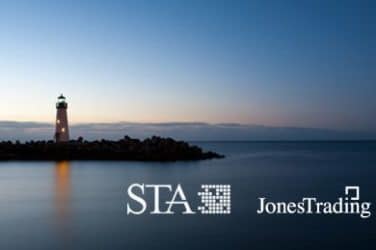
Five financial regulatory agencies have adopted final rules implementing a provision of the Dodd-Frank Wall Street Reform and Consumer Protection Act, commonly referred to as the Volcker Rule. The final rules generally would prohibit banking entities from engaging in short-term proprietary trading of securities, derivatives, commodity futures and options for their own account, as well as owning, sponsoring, or having certain relationships with hedge funds or private equity funds, referred to as ‘covered funds.’
As required by section 619 of the Dodd-Frank Act, the final rules provide exemptions for certain activities, including market making, underwriting, hedging, trading in certain government obligations, and organizing and offering a hedge fund or private equity fund, among others.
The five agencies — the Board of Governors of the Federal Reserve System, the Office of the Comptroller of the Currency, the Federal Deposit Insurance Corporation, the Securities and Exchange Commission and the Commodity Futures Trading Commission — proposed the same common rules in 2011 and 2012. Those proposals generated more than 18,000 comment letters.
Sifma issued a statement from Kenneth E. Bentsen, Jr., Sifma president, in response to the final Volcker Rule.
“Sifma remains concerned that an overly restrictive Volcker Rule will inflict serious harm on our nation’s economy and American savers. It is imperative that the final Volcker Rule does not unnecessarily restrict market making or a firm’s ability to hedge risks in the effort to clearly define prohibited proprietary trading activities.
“As the rule is contained in a 900 page document, Sifma will review the final document in detail with our members and provide further comments. It is important to remember that SIFMA member firms have already taken steps to prepare for implementation of the Volcker Rule. Many firms have been working to meet the spirit and purpose of the Rule by curtailing activities that would be clearly prohibited proprietary trading. Additionally, firms have begun the process of reducing positions in entities that are clearly a private equity fund or hedge fund.”
Like the Dodd-Frank Act, the final rules limit these exemptions if they involve a material conflict of interest; a material exposure to high-risk assets or trading strategies; or a threat to the safety and soundness of the banking entity or to U.S. financial stability.
The final rules prohibit proprietary trading by banking entities. As required by the Dodd-Frank Act, the final rules include exemptions for market making-related activities. Under this exemption, a trading desk is required to routinely stand ready to purchase and sell one or more types of financial instruments.
The final rules permit a banking entity to continue to engage in proprietary trading in U.S. government, agency, state, and municipal obligations. They also permit, in more limited circumstances, proprietary trading in the obligations of a foreign sovereign or its political subdivisions.
Scott O’Malia of the Commodity and Futures Trading Commission said in a dissent: “As the Commission moves towards finalizing the last of the rules mandated by the Dodd-Frank Act, I believe it’s time to get back to the basics of good government and proper rulemaking. The final rule does neither because of the abuse of process in its rulemaking and the lack of due process and clarity in its enforcement procedures. Because of these fundamental flaws in the final rule, I cannot support it.”
The final rules become effective April 1, 2014. The Federal Reserve Board has extended the conformance period until July 21, 2015. Beginning June 30, 2014, banking entities with $50 billion or more in consolidated trading assets and liabilities will be required to report quantitative measurements.




